Winds were expected to drop around Los Angeles, bolstering a huge firefighting effort at the five major blazes wreaking havoc around America's second biggest city.
At least 10 people have died as infernos ripped through neighbourhoods, razing thousands of homes in one of the worst disasters ever to hit California, with one estimate suggesting the bill could hit $150bn.
As the unimaginable scale of the damage started to come into focus, individuals began to grapple with heart-rending ruin.
"I lost everything. My house burned down and I lost everything," said Hester Callul, who reached a shelter after fleeing her Altadena home.
On Thursday California Governor Gavin Newsom deployed the National Guard to bolster law enforcement efforts.
Los Angeles County Supervisor Kathryn Barger said looters would face the full force of the law.
"I promise you, you will be held accountable," she said. "Shame on those who are preying on our residents during this time of crisis."
County Sheriff Robert Luna said on Thursday that his office was working on a nighttime curfew in areas ravaged by the fires.
"It looks like an atomic bomb dropped in these areas. I don't expect good news, and we're not looking forward to those numbers," he said at a press conference, referring to Pacific Palisades in the west and Altadena in the east.
The five separate fires have so far burned more than 35,000 acres (14,160 hectares) in Los Angeles, the state's fire agency reported.
The biggest of the blazes has ripped through almost 20,000 acres of the upscale Pacific Palisades neighbourhood, where firefighters said they were starting to get a handle on the fire.
By morning Friday 6% of its perimeter was contained – meaning it can't spread any further in that direction.
However, the Eaton fire in the Altadena area remained entirely unchecked, with almost 14,000 acres scorched and key infrastructure – including communication towers at Mount Wilson – threatened.
A third fire that exploded on Thursday afternoon near Calabasas and the wealthy Hidden Hills enclave, home to celebrities like Kim Kardashian, added to the feeling of encirclement.
"You just feel surrounded," one woman told a local broadcaster.
However, after a huge response to the blaze, including retardant drops from planes and helicopters dumping vast quantities of water, the fire was 35% surrounded, firefighters said Friday.
Some of those forced out of their homes began to return to find scenes of devastation.
Kalen Astoor, a 36-year-old paralegal, said her mother's home had been spared by the inferno's seemingly random and chaotic destruction.
However, many other homes had not.
"The view now is of death and destruction," she told AFP. "I don't know if anyone can come back for a while."
An AFP overflight of the Pacific Palisades and Malibu revealed desolation.
"This is crazy ... all these homes, gone," said helicopter pilot Albert Azouz.
On highly coveted Malibu oceanfront plots, skeletal frames of buildings indicated the scale of what has been destroyed.
Multimillion-dollar mansions have vanished entirely, seemingly swept into the Pacific Ocean by the force of the fire.
Socialite and hotel heiress Paris Hilton was among those whose home were lost.
"Heartbroken beyond words," she wrote on Instagram. "Sitting with my family, watching the news, and seeing our home in Malibu burn to the ground on live TV is something no one should ever have to experience. This home was where we built so many precious memories."
The fires could be the costliest ever recorded, with AccuWeather estimating total damage and loss between $135bn and $150bn.
President Joe Biden, who held a briefing on the fire response Friday, has declared the fires a major disaster and said the federal government would reimburse 100% of the recovery for the next six months.
The Democratic president hands over the government on January 20 to his successor Republican Donald Trump, who along with his allies have sought to blame Democratic state and local officials as well and environmentalists for the deadly disaster.
Beyond the immediate carnage, life for millions of people in the area was disrupted: schools were closed, hundreds of thousands were without power and major events were canceled or, in the case of an NFL playoff game between the Los Angeles Rams and the Minnesota Vikings, moved somewhere else.
Meteorologists have warned that "critical" windy and dry conditions, though abated, were not over.
A National Weather Service (NWS) bulletin said "significant fire growth" remained likely "with ongoing or new fires".
Wildfires occur naturally, but scientists say human-caused climate change is altering weather and changing the dynamics of the blazes.
Two wet years in Southern California have given way to a very dry one, leaving ample fuel dry and primed to burn.
International / US/Latin America
Wind lull offers hope in Los Angeles fires
At least 10 people have died as infernos ripped through neighbourhoods, razing thousands of homes in one of the worst disasters ever to hit California
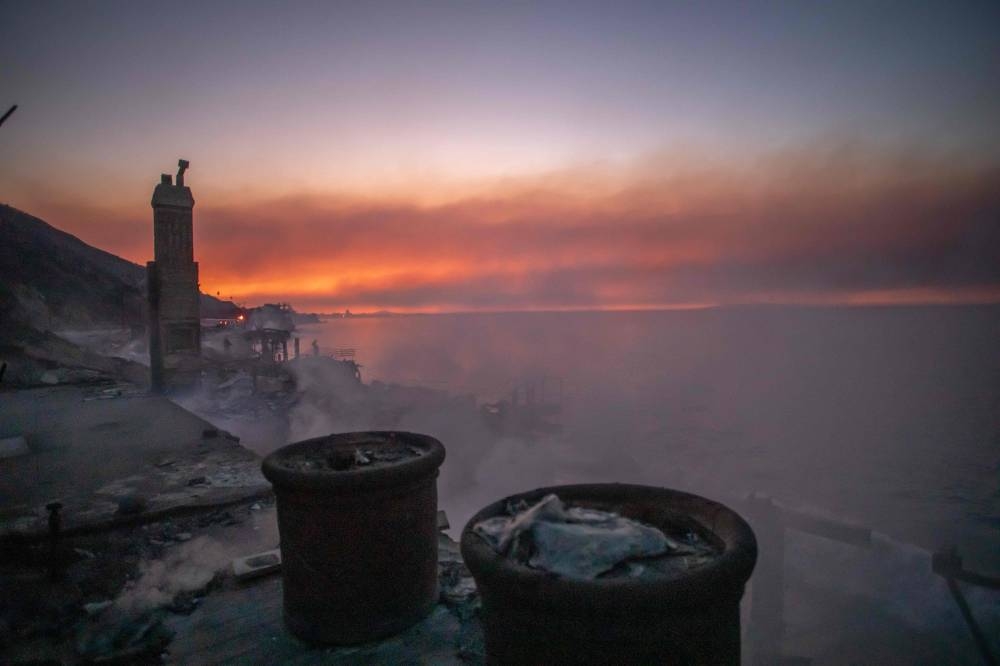
Wildfire smoke and burned houses from the Palisades Fire are seen at dawn on Friday in the Pacific Palisades neighborhood of Los Angeles, California. AFP
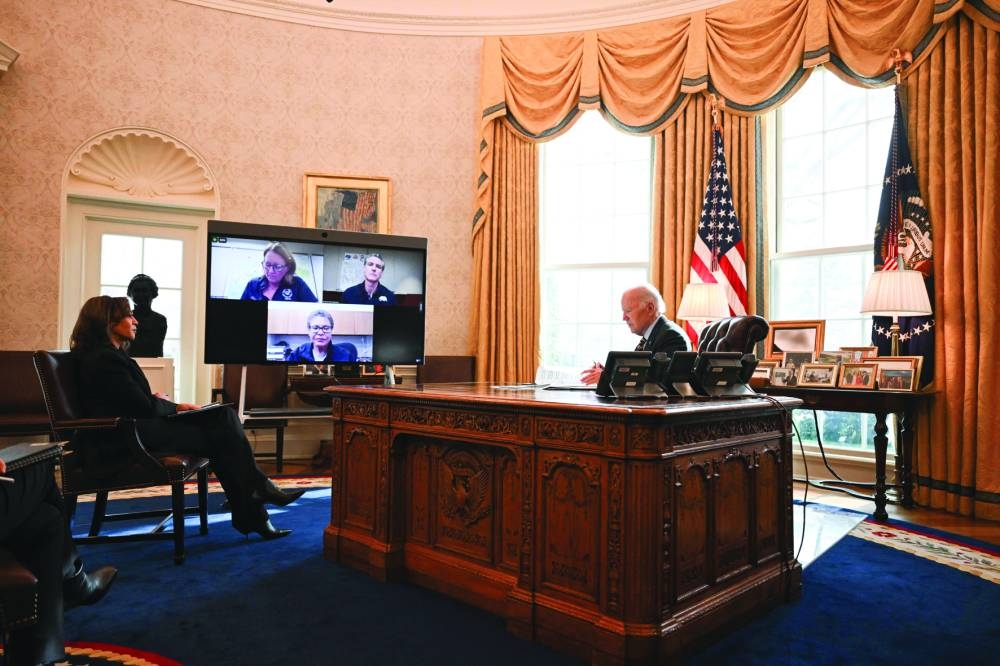
US President Joe Biden and Vice-President Kamala Harris listen during a briefing on the federal response to the Los Angeles wildfires as Federal Emergency Management Agency (FEMA) administrator Deanne Criswell (top left), California Governor Gavin Newsom and Los Angeles Mayor Karen Bass appear virtually in the Oval Office of the White House. AFP
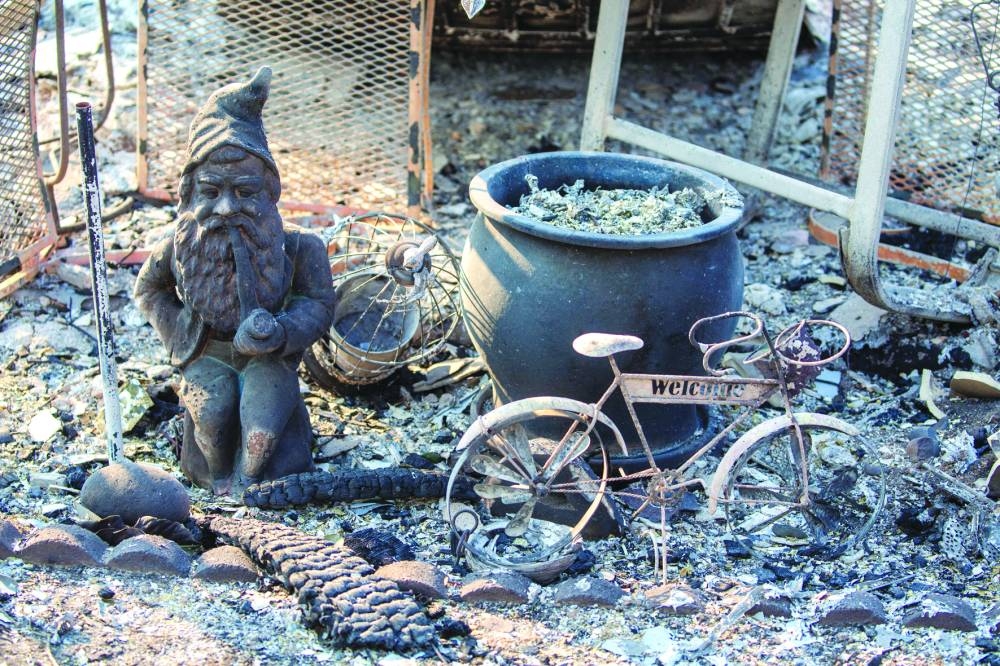
Yard decoration items sit on a structure damaged by the Eaton Fire in Altadena, California. REUTERS
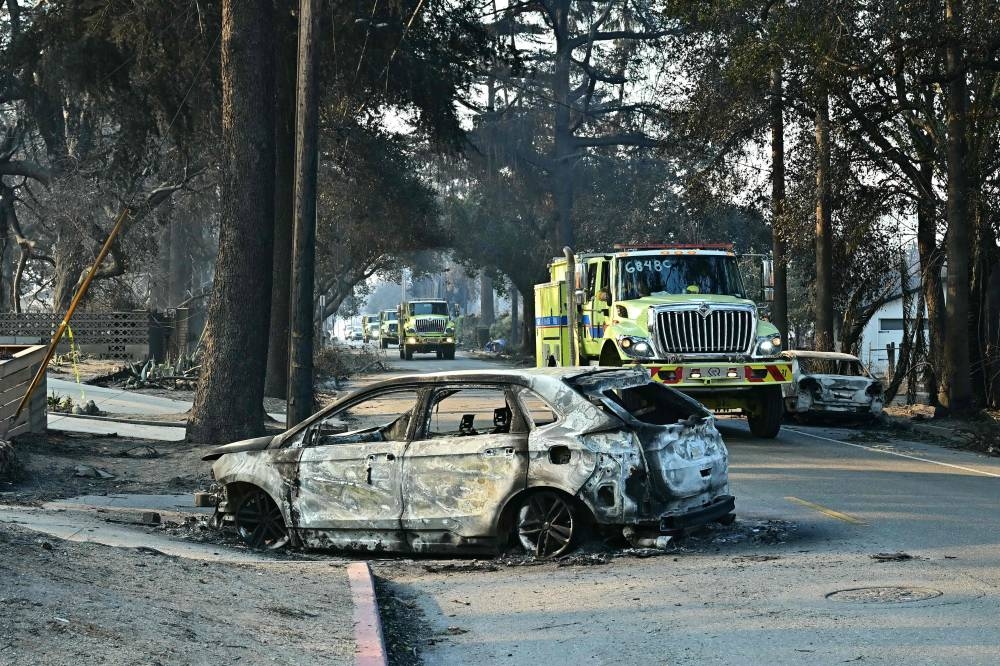
Firefighters travel through destruction left by the Eaton Fire in Altadena, California, on Friday. AFP
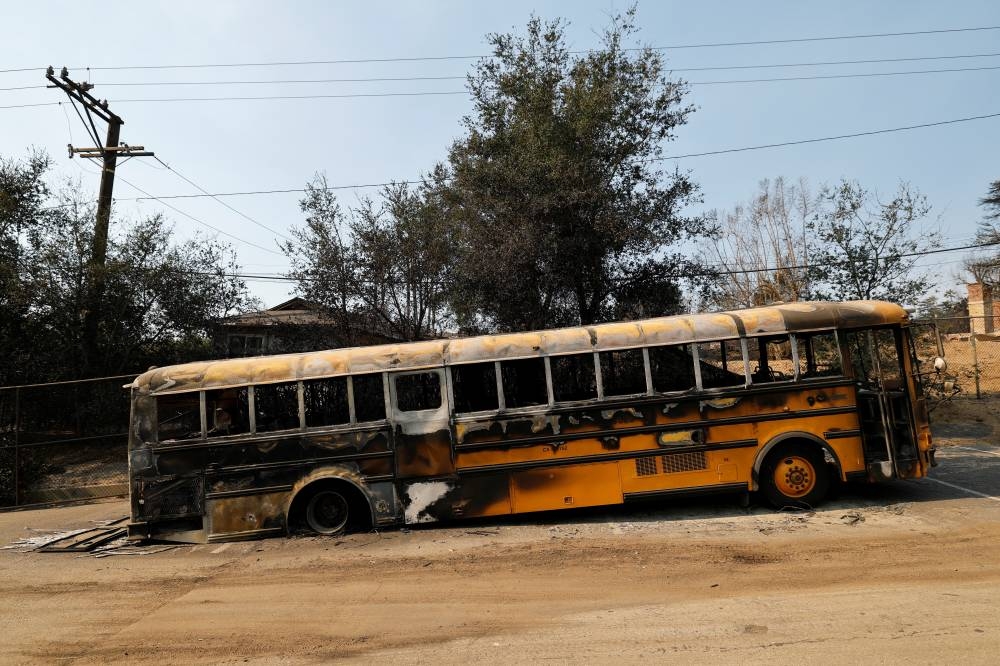
A school bus burned by the Eaton Fire stands on a street in Altadena, California, on Friday. REUTERS
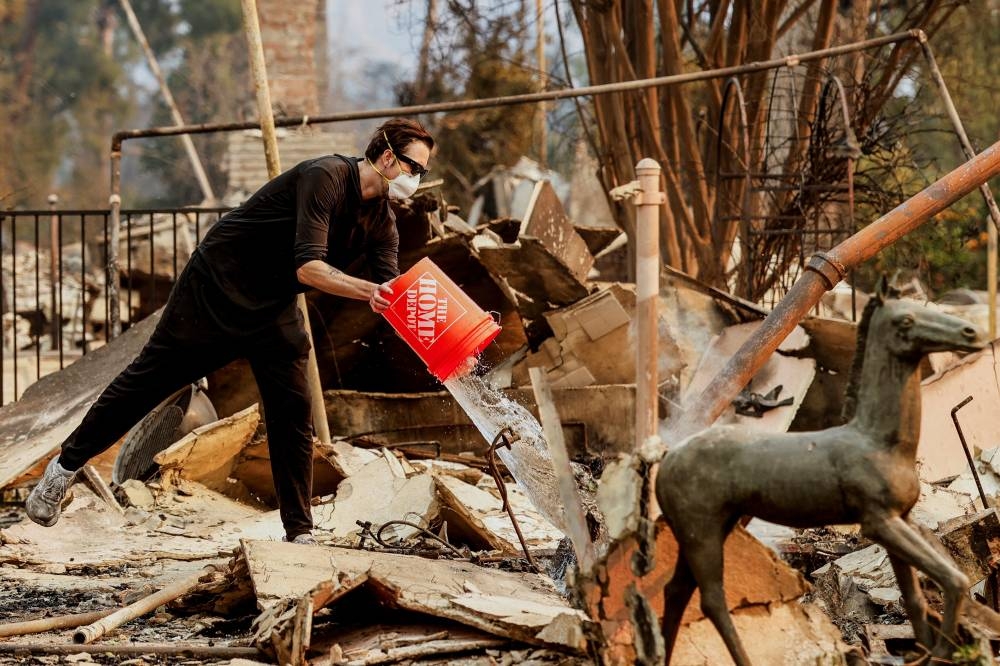
Chris Sullivan throws a bucket of water to douse an hotspot at a house that was burnt down by the Eaton Fire, on Friday. REUTERS
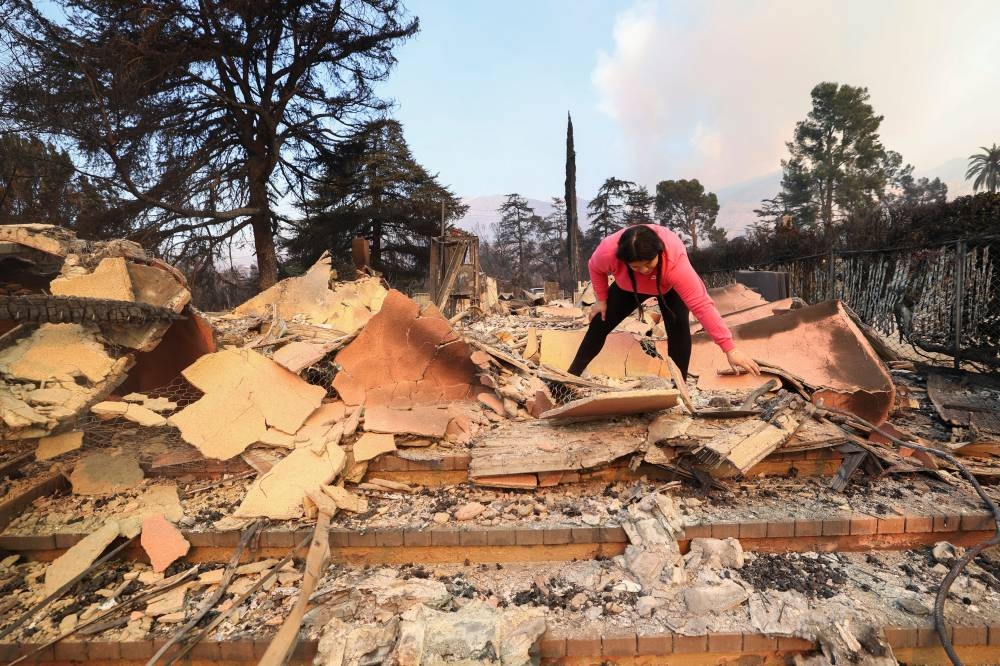
Conchita Gomez inspects damage after the Eaton Fire tore through a neighborhood, on Friday. REUTERS
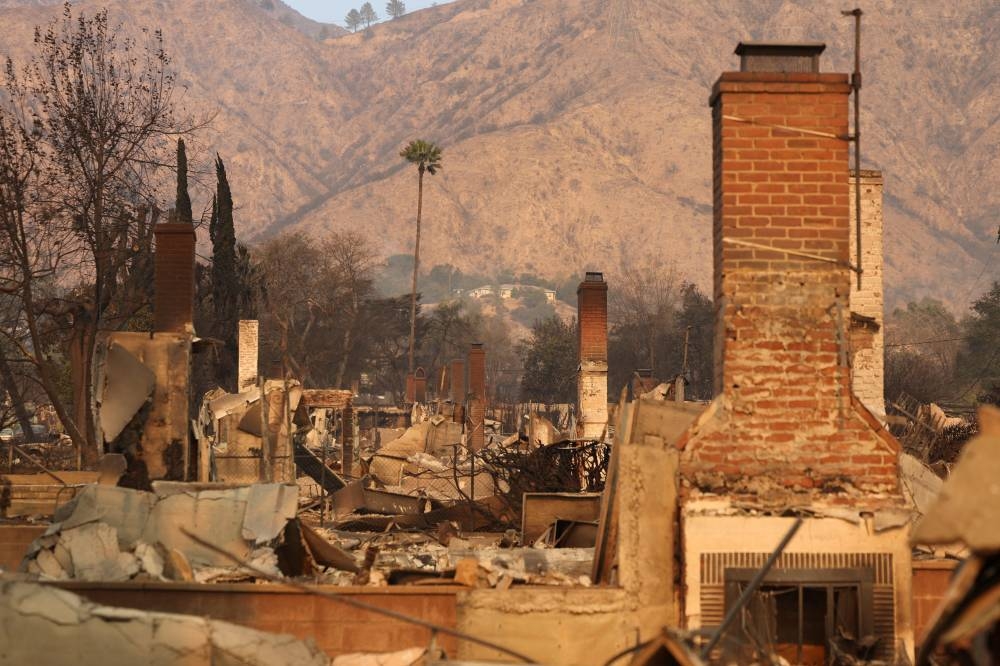
Property destroyed by the Eaton Fire lie in ruin, on Friday. REUTERS
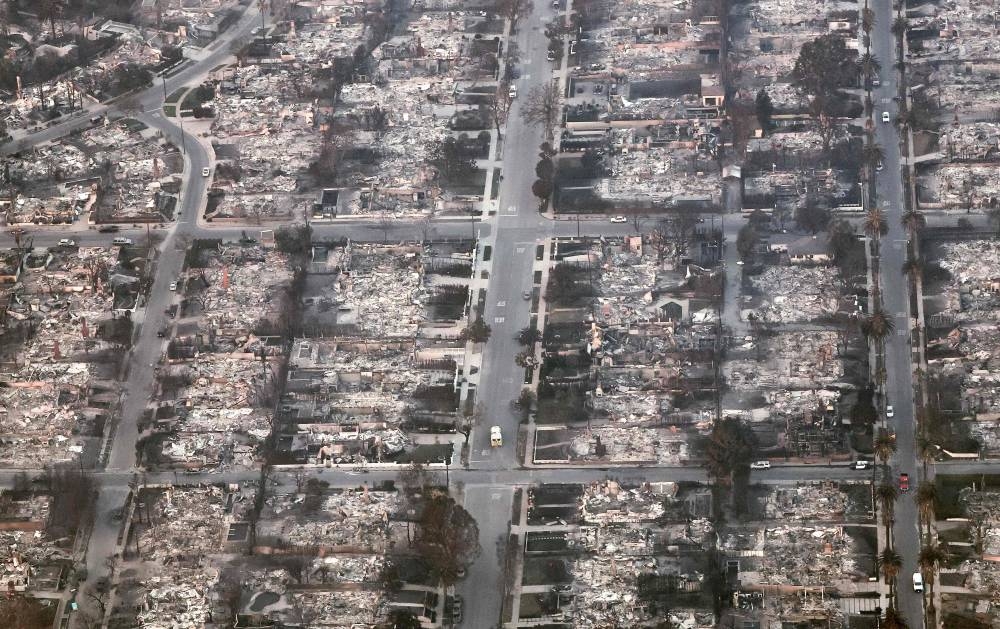
An aerial view of an emergency vehicle (C) driving past destroyed homes as the Palisades Fire continues to burn on Thuirsday in Pacific Palisades, California. AFP
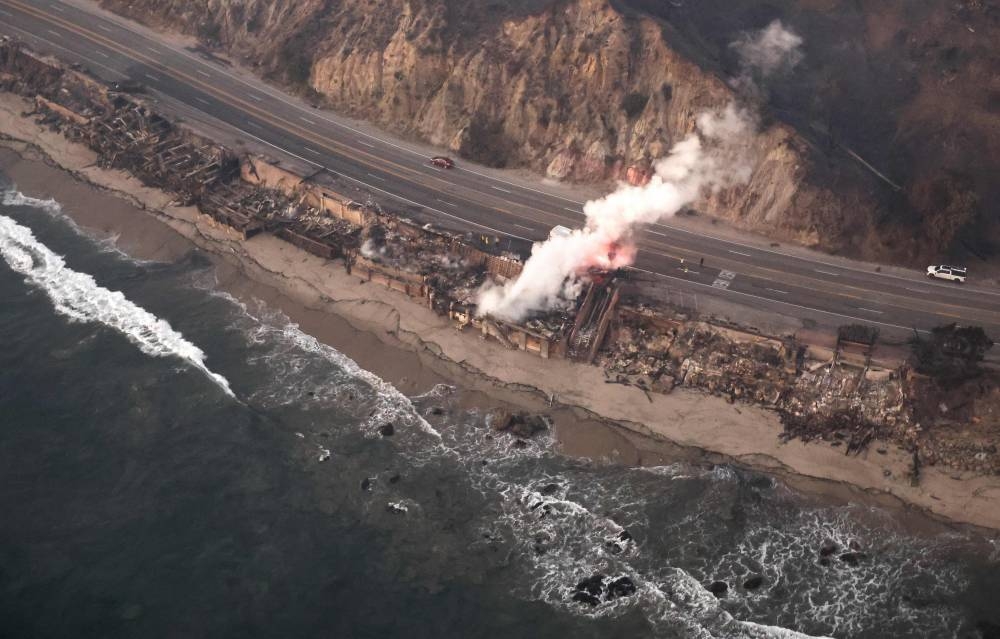
An aerial view of destroyed homes along the beach as the Palisades Fire continues to burn on Thursday in Malibu, California. AFP
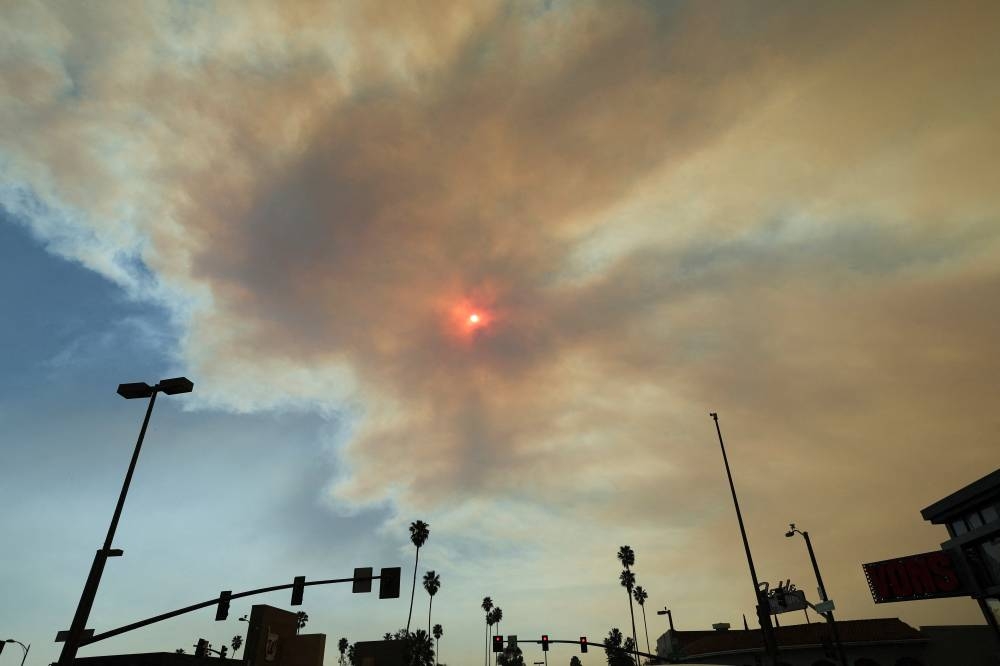
The sun is visible through smoke after the Eaton Fire tore through a neighborhood, on Friday. REUTERS
